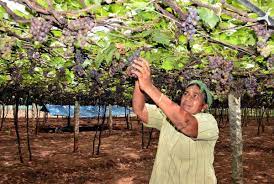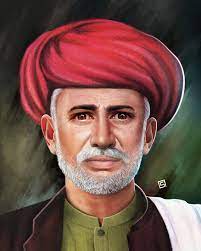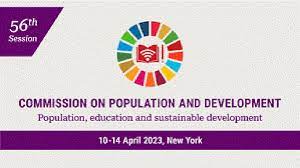Today’s Current Affairs: 13th Apr 2023 for UPSC IAS exams, State PSC exams, SSC CGL, State SSC, RRB, Railways, Banking Exam & IBPS, etc
Table of Contents
Debt Relief For a Green And Inclusive Recovery:

Reports by Debt Relief for a Green and Inclusive Recovery (DRGR) show that the debt of emerging markets & developing economies rose by 178% from 2008-2022.
Reports findings: –
- The sovereign debt of emerging markets and developing economies (EDME) increased by 178 per cent, from $1.4 trillion to $3.9 trillion, between 2008-2021.
- Global South is staring at a debt crisis, but the “Common Framework” created to provide debt relief has serious shortcomings.
- EDMEs are seeing weakened economic growth due to a slow recovery from the COVID-19 pandemic as well as high food and energy prices fuelled by Russia’s war in Ukraine.
- Escalating climate impacts have added to the financial burden of these countries.
- A strong US dollar and depreciating currencies for many EMDEs have exacerbated the problem.
- These shocks have weakened economic growth and ballooned debt burdens.
- The authors of the new report called for a reform of the Common Framework.
Debt Relief for a Green and Inclusive Recovery (DRGR):-
- The Debt Relief for Green and Inclusive Recovery (DRGR) Project is a collaboration between the Boston University Global Development Center, Heinrich-Böll-Stiftung and the Centre for Sustainable Finance, SOAS University of London.
- Objective is to advance innovative solutions to address the looming sovereign debt crisis.
UN Democracy Fund:

The UN Democracy Fund extended support for NGOs funded by George Soros, who is on a watchlist in India.
- The UNDEF was established in 2005 with an initial contribution of $10 million each from the United States and India.
- In 2005, India’s then PM, Manmohan Singh, and US President George W. Bush announced the US-India Global Democracy Initiative, which included support for the UNDEF.
- It was created by UN Secretary-General Kofi A. Annan in 2005 as a United Nations General Trust Fund to support democratization efforts around the world.
- Objectives is to support projects that strengthen the voice and participation of civil society, promote human rights, and encourage the development of democratic institutions and processes.
- It is funded entirely by voluntary contributions from member states and is governed by an advisory board composed of 16 members representing different regions of the world.
Exercise Cope India 23:

The announcement for Exercise Cope India 23 between the Indian Air Force, and the United States Air Force was made.
- Exercise Cope India 23 is a bilateral air exercise between the Air Forces of India and the U.S.
- It will be held at Air Force Stations Arjan Singh (Panagarh), Kalaikunda, and Agra.
- Japan will act as an observer.
- The exercise aims to enhance mutual understanding between the two Air Forces and share their best practices.
- It will involve transporting aircraft and Special Forces assets from both the Air Forces.
- Both sides will field the C-130J and C-17 aircraft, with the USAF operating an MC-130J as well.
- The Indian Air Force (IAF) is set to field its frontline fighters SU-30MKI, Rafale and the indigenous Light Combat Aircraft along with force multipliers, while the U.S. Air Force is expected to bring in F-15 fighter jets.
Livestock Insurance Scheme:

After the Parliamentary Standing Committee (PSC) pointed out ‘zero insurance coverage’ of livestock in 2022-23, the central government is considering a comprehensive livestock insurance scheme modelling the Prime Minister’s Fasal Bima Yojana.
- The proposed Comprehensive livestock insurance will replace the present Livestock Insurance Scheme (LIS)
- Less than 1% of the country’s cattle population is currently insured, with the average yearly premium at 4.5% of the insured amount.
- The proposal:
- Waive off premiums for cattle rearers from Scheduled Caste-Scheduled Tribe communities
- Reduce premiums so that more farmers can enrol in the scheme
- Ensure maximum coverage of livestock to protect them from pandemics such as lumpy skin disease.
Livestock Insurance Scheme (LIS):
- Launched In Year 2008-09
- It is a Centrally sponsored scheme
- Implementing Agency : Department of Animal Husbandry, Dairying & Fisheries
Cumbum Grapes :GI Tag

The Cumbum grapes recently earned the Geographical Indication tag or GI tag.
- Cumbum Panneer Thratchai, also known as Cumbum grapes, is a variety of grapes grown in the Cumbum Valley located at the Western Ghats in Tamil Nadu, India.
- The grapes are medium to large in size, compact, and suitable for making wine, spirits, jams, canned grape juice, and raisins.
- Introduced in Tamil Nadu in 1832 by a French priest, these grapes are rich in vitamins, tartaric acid, and antioxidants, and reduce the risk of some chronic diseases.
Mahatma Jyotiba Phule Birth Anniversary:

The Prime Minister has paid tribute to the great social reformer, Mahatma Jyotiba Phule on his birth anniversary
- Jyotirao Phule was born on 11th April 1827 in Maharashtra, India. He belonged to the Mali caste of gardeners and vegetable farmers.
- Phule was greatly influenced by Thomas Paine’s book ‘The Rights of Man’, which led him to advocate for liberty, egalitarianism, and socialism.
- He believed in the enlightenment of women and lower-caste members as the only solution to combat social evils.
- He was a prolific writer, and his major publications include ‘Tritiya Ratna,’ ‘Gulamgiri,’ and ‘Shetkarayacha Aasud.’
- He established the Satyashodhak Samaj in 1873, which meant ‘Seekers of Truth’ and aimed to attain equal social and economic benefits for lower castes in Maharashtra.
- In 1848, Phule and his wife Savitribai opened the first indigenously run school for girls in Pune, where they both taught.
- He established an ashram for young widows and became an advocate for the idea of Widow Remarriage. He worked towards abolishing untouchability and the caste system in Maharashtra.
- He passed away on 28th November 1890, and his memorial is built in Phule Wada, Pune, Maharashtra.
- It is believed that he was the first person to use the term ‘Dalit’ for the depiction of oppressed masses often placed outside the ‘varna system’
Guru Tegh Bahadur : Prakash Purab

The Parkash Purab of Sri Guru Tegh Bahadur, the ninth guru of the Sikhs, is being celebrated on April 11.
- Parkash Purab is a term used in Sikhism to refer to the birth anniversary celebrations of the ten Sikh gurus.
- “Parkash” means “illumination” or “light,” while “Purab” means “day.”
- Guru Tegh Bahadur was born in Amritsar in 1621 to Guru Hargobind and Mata Nanki. Tegh Bahadur’s writings are housed in the ‘Guru Granth Sahib’ as 116 poetic hymns.
- He founded the town of Chak-Nanki and played a key role in setting up preaching centres throughout the Indian subcontinent.
- However, he was executed in Delhi in 1675 under the orders of Mughal Emperor Aurangzeb.
REITs And InvITs Index:

NSE Indices Ltd, a subsidiary of the National Stock Exchange (NSE), launched India’s first-ever Real Estate Investment Trusts (REITs) and Infrastructure Investment Trusts (InvITs) Index
- The new index aims to track the performance of REITs and InvITs that are publicly listed and traded on the NSE.
- The index will be reviewed and rebalanced every quarter.
- The weights of securities within the index are based on their free-float market capitalization, subject to a security cap of 33% each and the aggregate weight of top-3 securities is capped at 72%.
- The top constituents of the Nifty Reits & InvITs index include Embassy Office Parks Reit, Powergrid Infrastructure Investment etc.
- REITs:
- It is a company that owns, operates, or finances income-generating real estate.
- Most of them are publicly traded like stocks, which makes them highly liquid (unlike physical real estate investments).
- It is modelled after mutual funds; REITs pool the capital of numerous investors.
- This makes it possible for individual investors to earn dividends from real estate investments—without having to buy, manage, or finance any properties themselves.
- InvITs:
- These are mutual fund-like institutions that enable investments into the infrastructure sector by pooling small sums of money from a multitude of individual investors for directly investing in infrastructure
- These are set up as a trust and registered with SEBI.
State Development Loans:

Four states raised Rs 5,800 crore through state development loans (SDL) auction — about one-fourth of the amount 15 state governments intended to raise in the upcoming days.
- State Development Loans are dated securities issued by states for meeting their market borrowings requirements.
- Purpose is to meet the budgetary needs of state governments.
- The higher the fiscal strength of a state, the lower will be the interest rate (yield) it has to pay for the SDL borrowings.
- These are securities and they are auctioned by the RBI through the e-Kuber which is a dedicated electronic auction system for government securities and other instruments.
- Reserve Bank of India holds SDL auctions once a fortnight.
- The rate of interest or yield of SDL securities is determined through auction.
- The interest rate will be slightly higher than that of Central Government securities (G-secs) of matching tenure.
- The investors in SDL are basically commercial banks, mutual funds, and insurance companies that are attracted by the slightly higher interest
Cost Inflation Index : Current Fiscal Year

The Income Tax Department has notified the Cost Inflation Index for the current fiscal beginning April 2023.
- The Cost Inflation Index number for the current fiscal year 2023-24 is 348 as per a notification of the Central Board of Direct Taxes (CBDT).
- Cost Inflation Index is notified under the Income-tax Act, 1961 every year since 2001 in the month of June.
- But this year’s CII is notified 3 months earlier as compared to last fiscal year.
- Taxpayers will need this CII number at the time of filing income tax return (ITR) next year i.e., AY 2024-25.
Cost Inflation Index (CII):
- CII number is used to adjust the purchase price of assets on the basis of inflation.
- The CII number helps an individual to ascertain the inflation-adjusted current price of an asset.
- This helps in calculating capital gains from a transfer or sale of capital assets after taking inflation into account.
56th Session Of UN’s Commission On Population And Development:

In 56th session of UN’s Commission on Population and Development,held at New York, deputy Secretary-General warned that the goal of achieving quality education for all by 2030 is “seriously off track”.
- Currently around 263 million children and young people are out of school in the world.
- Nearly 70 % of children in poorer countries cannot understand a basic text by age 10, mainly due to chronic factors such as poverty and malnutrition.
- The situation of women and girls in Afghanistan is severe where they have been banned from high school and university.
- Comprehensive sexuality education (CSE) empowers girls to avoid unintended pregnancies and encourages both genders to stay in school, among other benefits.
- Most of countries are facing “a triple crisis in education – one of equity and inclusion, quality and relevance, to equip current and future generations with the skills they need to thrive in a fast-changing world.”
UN Commission on Population and Development:
- A Population Commission was established by the Economic and Social Council (ECOSOC) in 1946, which was renamed as the Commission on Population and Development by the General Assembly in 1994.
- The Commission is composed of 47 Member countries.




